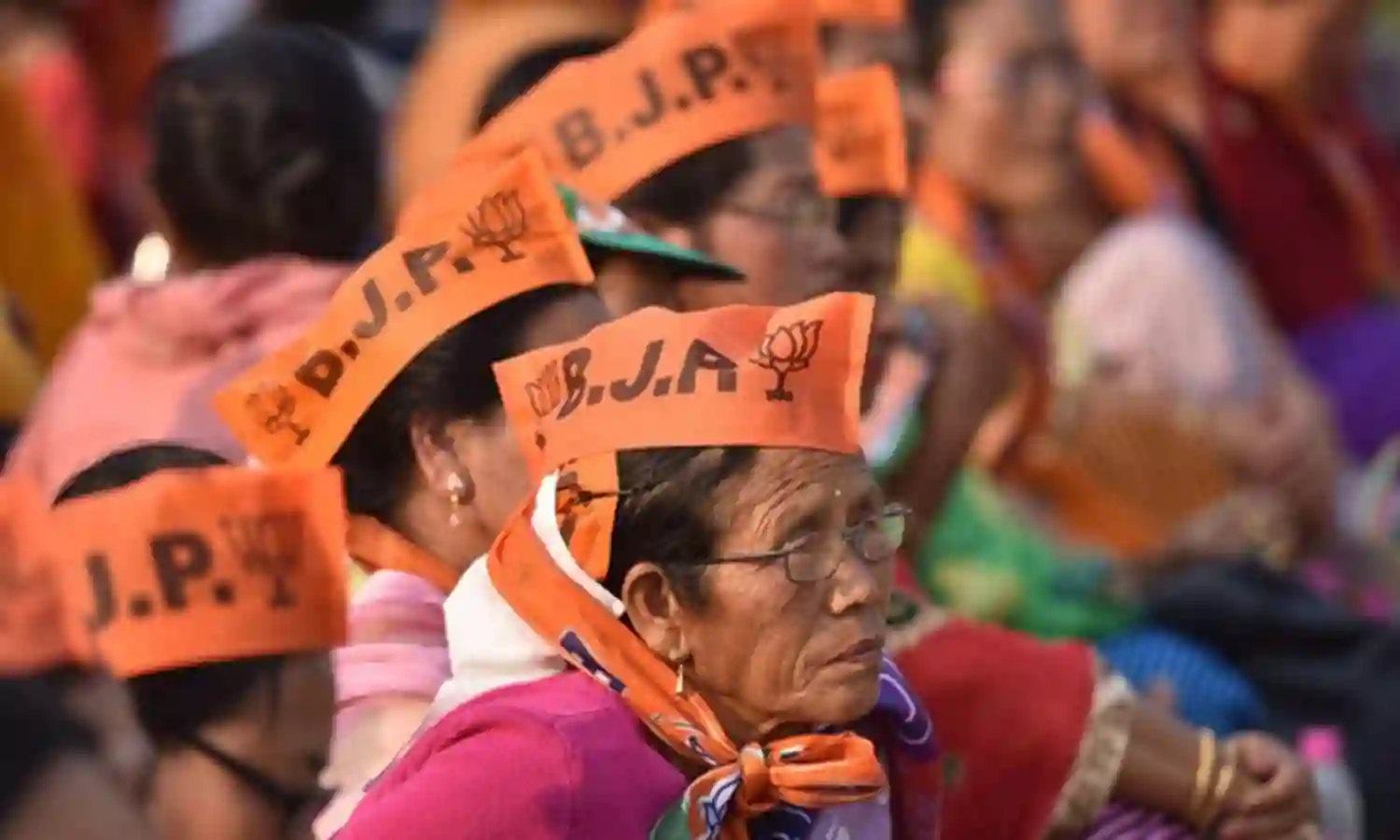Manipur Stays with Delhi
Biren Singh set to return

The BJP had maintained a lead through both phases of the Manipur assembly election, and trends suggest that led by CM Biren Singh it will return to form the government in the state.
While the BJP contested all 60 seats alone, the Congress had formed an alliance with the CPI, CPM, RSP, JDU and the Forward Bloc. At the time of writing the BJP has won or is leading in 24 seats.
The situation in 2017 was different. The Congress emerged as the largest party with 28 seats, but the BJP with 21 seats and support from the National People’s Party and Naga People’s Front formed the government.
This election campaign, Union Home Minister Amit Shah visited Imphal on February 23. He promised the party would ensure that Manipur becomes a national hub for sports, with a National Sports University in the state attracting investment of over INR 825 crore in the next few years.
Since the BJP came to power in 2017, public infrastructure in Manipur has been developed considerably and inconveniences like flash bandhs and rallies have virtually been stopped. Hinting at this, Shah said that “Being a footballer, Manipur Chief Minister Biren Singh knew how to score and save goals. So, he prevents bandhs and others, and takes up development and peace initiatives.”
Poor water supply has historically been an issue in the northeastern region. Shah did not fail to mention that while only 5% of Manipur households got water connections in 15 years of Congress governments, the BJP was able to provide water to 57% of households in just five years.
With a BJP government at the centre, Manipur has also been furnished with nearly 69,000 new houses and LPG connections to 1.55 lakh women in the state, claimed Shah.
While poll predictions started out by saying Manipur would likely see a hung house, that quickly changed. By noon CM Biren Singh had already won from Heingang (his home constituency) by a margin of 18,000 votes. At the time of writing the BJP has won or is leading in 24 seats alone.
The NPP was not spared questioning on its shift of allegiance away from the BJP. The JDU won two seats and has a razor’s edge in four. Some new players were also in the fray in these elections, like the Kuki People’s Alliance, which only contested two seats, Saikul and Singhat, winning both.
In Manipur while the valley is dominated by the Meitei tribe, the hills are more populated by Nagas and Kukis, which makes the formation of the KPA a landmark move in future politics. So far the Kukis have only contested as members of other national parties, and their vote has been considered for the sake of numbers alone. However Kuki organisations, namely the Kuki National Organisation and the United People’s Front, pledged their support to the BJP in all areas of Manipur where they operate.
Addressing his audience at the Devi Mandop ground in Heirok village, Amit Shah had announced, “Give us five more years, BJP government will take up steps for talks with the insurgency groups of Manipur to bring peace in the state.” He claimed that more than 9,500 people engaged in insurgency had given up arms and “joined the mainstream.”
While Indigenous interests have historically been a matter of contention in the northeastern region and allegiances tend to be divided, Manipur still tends to go with whoever holds power at the Centre. As exit polls predicted his return to power, Biren Singh stated that his government will focus on PM Modi’s mantra of “inclusive development”.
Halfway through the counting of votes, it was announced that due to a shortage of counting halls and returning officers being in charge of more than one constituency, votes will be counted in two phases in Manipur.
Cover Photograph: BIJU BORO/AFP/GETTY IMAGES



